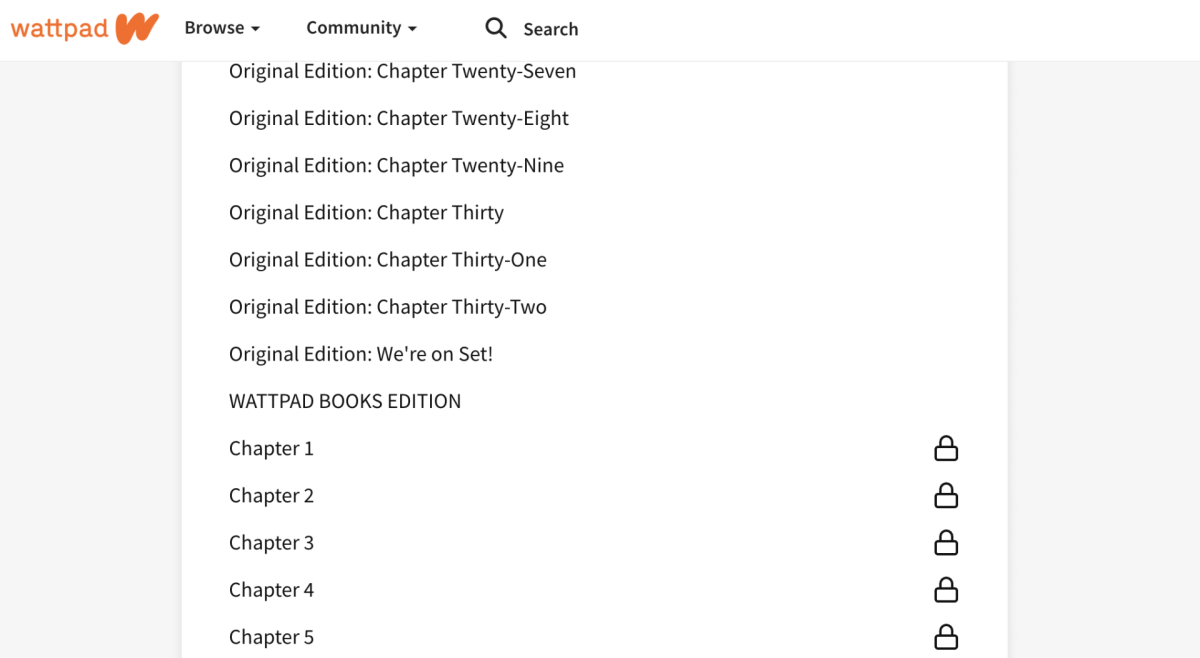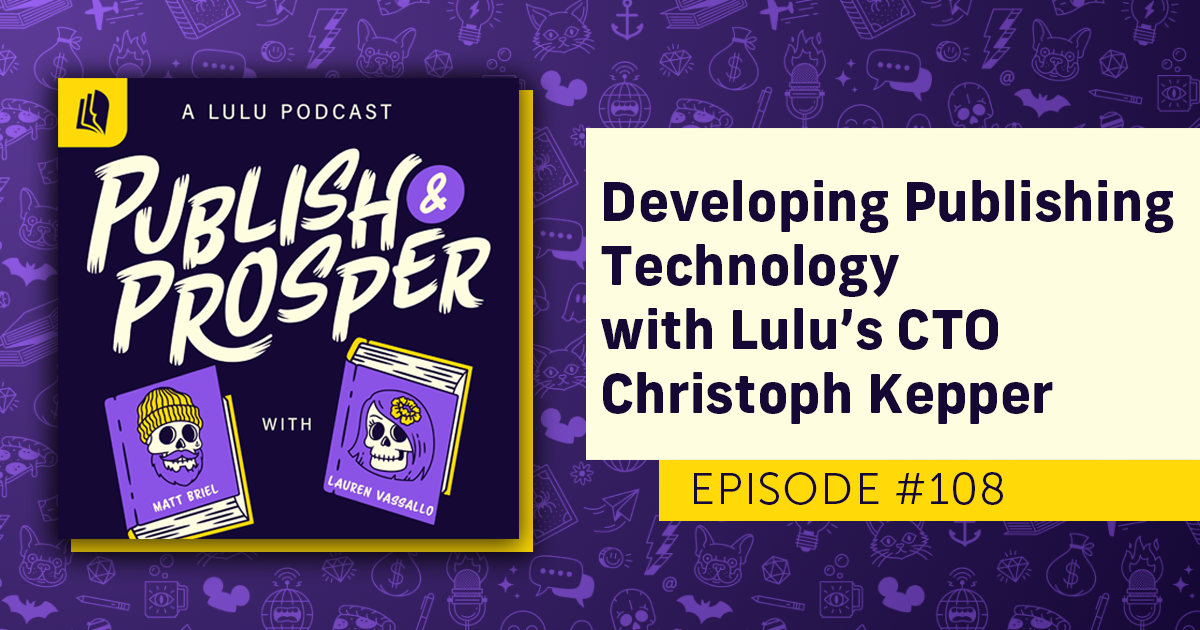Serial Fiction Online: A Complete Publishing Guide
Serial fiction is one of the best ways to sell your writing today. Period. If your goal is to make writing fiction your primary source of income, serializing your work ensures readers will keep coming back and allows you to adapt to your audience as you write.
If you haven’t considered serial fiction but want to sell your writing, you are in the right place. Let’s break down how you can build your audience and grow your profits when you publish serial fiction online.
Why Serial Fiction Online?
Sharing and selling your serial fiction online gives you access to a huge audience of potential readers (literally anyone who reads in your genre and has internet access) and ensures you’ll have content to share regularly.
If you’re a new author just starting to create fiction, you may want to begin by sharing short stories to see what your audience likes. Think like a marketer and iterate. There’s nothing wrong with publishing a piece of fiction online that doesn’t get a lot of reads. Everything you publish online can (at the very least) be a learning experience.
When you publish a book, that’s it. Readers either like it or they don’t. If you start smaller, sharing short stories or novellas, you have the opportunity to see what works and what doesn’t. The serial format is very forgiving, allowing you to try specific platforms and genres until you find what resonates with your readers.
Once you have found a story or set of characters that resonate with your fans, you can evolve your story into a serialized novel. Not to imply that serial publishing and selling serial fiction online is easy, but it can be significantly less challenging than writing, editing, and publishing a complete novel.
How Do I Publish Serialized Fiction?
You’ve got two primary ways to publish your serial fiction online: using a specific platform dedicated to publishing fiction and self-publishing through your own platform.
Note that I said and not or.
Serial fiction first gained traction in the 19th century, Victorian era. Printing presses were appearing in major cities, making printed materials widely available. Authors could publish their work as a short story in periodicals, bringing new episodes to fans each week or month.
In fact, some well-known authors like Charles Dickens and Arthur Conan Doyle published their stories as serials. Dickens’ 1836 Pickwick Papers is cited as the first serial publication!
Serial Fiction Publishing Platforms
There are four commonly used serial fiction websites for publishing your work online:
- Wattpad
- Royal Road
- Radish
- Kindle Vella
Wattpad
You’ve probably heard of Wattpad. They’ve been around since 2006 and kind of revolutionized serial fiction. Wattpad simplified ebooks by eliminating the need to buy the book and download it to a device to read.
Instead, you would read the stories directly on Wattpad’s site (and now their App). Suddenly, it was much easier to get your story out there and connect with readers.
For serial writers, Wattpad represents a tried and trusted platform for sharing your work and growing your audience. And with their paid stories option, you can even monetize your fiction. You’ll find all kinds of genres on Wattpad, from romance to science fiction to literary fiction and everything in between.

If you’re just dipping your toes into writing serial fiction online, Wattpad is probably the place you’ll want to start.
Royal Road
Royal Road is a thriving community of writers focused on publishing long-form serial stories. Their model is a little different from other serial publication sites: they don’t directly charge you to read installments. Instead, you can decide to support the author through donations.
They also feature a premium option for both readers (removes ads and adds some features) and authors (removes ads and provides reading analytics) for a monthly fee. Note that the premium options do not directly support any authors—the fees are there to help keep Royal Road up and running.

Royal Road’s content is largely fantasy and science fiction, with a healthy dose of fanfiction as well. And with an active forum, you can do more than just share your writing. If you’re looking to build a community and find new potential readers, Royal Road offers the best ways to directly talk to your fans.
Radish
Founded in 2015, Radish is a newer platform that took off in the last couple of years. Just like Wattpad, Radish is a platform designed to host and distribute short pieces and is well-suited to authors looking to publish a fiction series.
There are some major differences in Radish’s model, though. Importantly, readers access stories through their app only, so you’ll need to download it to use Radish.
Radish is heavily focused on romance. If you’re writing literary fiction, you probably won’t find much success with Radish.
And, perhaps the most interesting difference is the author’s application process. On Wattpad, you can create an account and just publish whatever (within reason and Wattpad’s T&Cs). Radish only publishes curated stories, meaning you’ll have to apply, be vetted, and get approved as a serial writer before you can start publishing.

Authors who publish on Radish will have the first chapter or section of their story made available for free. To finish the story, you’ll need to spend money, ensuring authors can monetize their work, but only if they serialize and continue to publish more content.
Kindle Vella
Finally, we’ve got Amazon’s offering for serialized stories. Their Kindle Vella service is a lot like a mash-up of Wattpad and Radish—anyone can use Vella to publish, but the monetization follows Radish’s model.

There’s not a lot more to say about Vella. If you’ve already published in Amazon’s ecosystem, it’s probably slightly easier to continue serial publishing with Amazon services. The same goes for your audience. If you know your readers are using Kindle devices to read digital fiction, Vella might be the best choice to make sure your stories are reaching your fan base.
Ways to Sell Serial Fiction
So far, we’ve looked at popular ways to publish your serial fiction online digitally. But what about your fans who enjoy reading printed books? And, more importantly, what about your profits?
If you’re publishing serialized work on a digital platform, you need to think about it like social media marketing. Publishing digital serial novels is not your best way to earn money (though, of course, some earn a lot on these platforms), and you suffer the same problems all retail sites have: they’re keeping your customer information from you. However, serialized content is a great way to capture new readers and build an audience around your content.
The answer is to self-publish and sell your serial fiction on your own website!
Selling Books on Your Website
If you’ve already got an author website and your fans are checking it out and signing up for your email list, you’re doing great! You’re in the perfect position to make use of Lulu Direct to integrate print-on-demand for your book with your existing Shopify, Wix, or WooCommerce store.
Even if you don’t have your own author site, you can use Shopify’s Starter Plan to sell through social media.
Using ecommerce tools to sell directly to your readers is the perfect way to earn all the profits from your sales while retaining 100% creative control. And with the ease of self-publishing, you can offer your serialized content in a variety of formats.
Self-Publishing Serial Fiction
The obvious option is to offer your serial fiction as novels or collections. Doing so creates an opportunity to sell to a wide variety of readers—from the dedicated serial reader stalking your Wattpad account to the more traditional reader who wants a printed book to curl up with.
If you’re self-publishing your serial fiction on your own website, your readers will also have a chance to engage with any other content you create. And you can still offer serial fiction in a range of formats. That might be a blog-style section of your site you update with new installments, printed compilations, or a paid option for your biggest fans to get installments in their inbox.
Selling Digital Serial Fiction
Platforms like Wattpad and Radish gate content with microtransactions—asking you to pay just a little for each new installment, letting you read chapter by chapter as you pay. That’s a fine method and you should take advantage of it if you can.
But that only works if you create originally published content and publish it regularly. If you’re earning $0.05 per transaction, you’re going to need a LOT of readers to earn enough to pay your bills.
The future of publishing will be in hybrid, multi-platform approaches. Self-published authors will need to use two or three or even more platforms to reach a broader audience. That might include publishing on Wattpad, your own blog, and offering a printed version of the fiction book containing multiple installments.
Making Serial Fiction Work for You
Stories that use the serialized form present an exciting new way to build an audience, get your work out there, and earn a profit from your writing. You’re not locked into a single narrative, the plot and characters can change, and you’ll have time to understand what your fans want to read.




